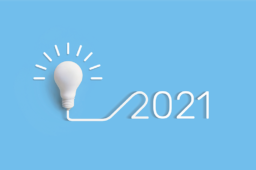
Effective Recruitment Processes
- April 11, 2019
The new methods for an effective selection process seek to be agile and focus on skills rather than experience, which brings a multitude of benefits. Find out what they are and how to apply them.
At this stage of the century, no professional can be asked to be objective, as it has been demonstrated that we are more subjective than we think, that there is no a purely rational mind. This recognition questions in some way one of the pillars of Human Resources: the job interview.
In the methods traditionally used to select a candidate, the interviewer may be driven more than he thinks by subjective impressions and personal preferences. Also, they are conducted in a forced manner, as if it were an exam to which, of course, the candidates are more than prepared.
The need to hire staff with new skills and specific preparation for the new digital times is leading companies to renovate this bastion, with more effective means of selecting candidates who are this interesting:
The automated selection
Business LinkedIn mentions the case of Unilever, a company that faced 250,000 job applications. It designed an automated process that started with a mobile form self-filled with the LinkedIn profile. The selected candidates were then submitted to an aptitude test that, through technological games, chose the best candidates, who were then submitted to the video interview. This was recorded and an algorithm made a final selection of candidates, who arrived at the last test: a real day’s work in the company, evaluated by the managers.
This impressive automatic process not only reduced the time spent on selection by 75%, but also considerably increased the diversity of candidates in terms of gender, ethnic origin and socio-economic status, which is so necessary to encourage innovation in the company.
Real tests
In some companies, therefore, it is opted to ask candidates to work (a few hours, a day) in the company to really get to know their skills. While others entertain themselves by designing auditions in which candidates have to compete and demonstrate their skills, as if they were in a television game or competing for a role in a play.
Informal interviews
There are more and more cases of interviews outside the company, in informal spaces, where the candidate can be better known.
Or absurd or stressful situations are created that test the candidate. Like asking hypothetical questions, simulating an accident in the company, causing an error in the restaurant where the interview is held… It is an excellent way to see how the candidate reacts to unexpected events and to get to know his personality better.
Virtual Reality
Some companies are already daring to create capacity tests using virtual reality, in which the way they work and solve problems are evaluated. This is an ideal format for young candidates, who are used to interacting with screens.
The selected ones are placed in virtual reality appliances and face situations in which they must react in the way that the company values the most.
Video interviews
Video interviews are indispensable in a global selection process and ideal for evaluating the ability to transmit and the empathy of candidates for customer service jobs.
A video interview does not have to be in real time. The candidate can be asked to introduce themselves and record answers to questions.
Each company must evaluate which method is most useful to them, or design a process with which they are comfortable. An automated preselection, for example, that ends in a one-on-one interview or a day’s work at the company. These innovative techniques allow you to get to know the candidate better and ensure that they fit the job.
People First es un espacio de inspiración donde compartimos contenidos con un eje común: las personas. Desde distintas ópticas y sectores, abordamos varios temas, tendencias y noticias de interés humano.





